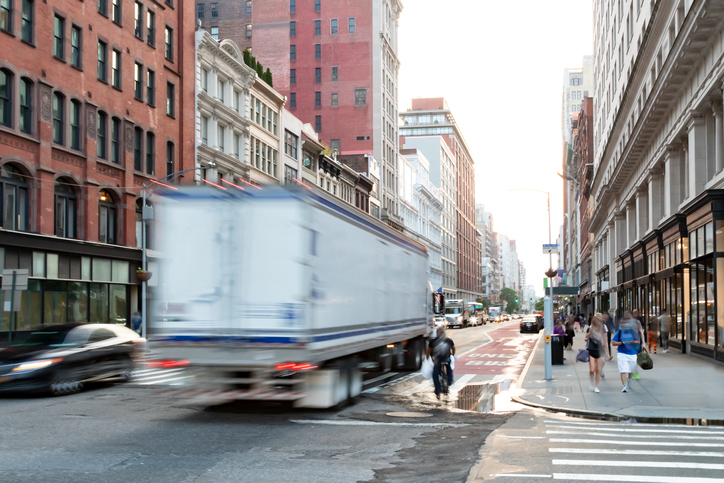
Why the Latest DeKalb Truck Crash Underscores Atlanta’s Growing Truck Accident Risks
A recent crash in DeKalb County is a stark reminder of how quickly a routine morning can turn dangerous—especially in Atlanta, where the combination of commercial freight traffic, congested highways, and aging infrastructure creates a heightened risk for catastrophic accidents. According to FOX 5 Atlanta, a truck driver became trapped on railroad tracks at Covington Highway and Turner Hill Road when his vehicle got stuck due to clearance issues. Moments later, a train barreled toward him. With no time to spare, the driver leapt from the cab and escaped just before impact. The collision tore the truck in half—splitting the trailer from the cab—and left debris scattered across the area.
It’s fortunate that this incident did not result in life-threatening injuries, but the circumstances highlight the real dangers present at rail crossings, particularly for commercial trucks. The Federal Railroad Administration has repeatedly stressed that rail-crossing collisions remain one of the most persistent transportation hazards nationwide. Georgia ranks among the states with higher rates of these crashes, and Atlanta’s sprawling freight network only intensifies the problem.
Commercial trucks play a critical role in Atlanta’s economy, but they also face unique risks on the road. The city’s infrastructure—characterized by tight interchanges, narrow surface streets, and rail corridors intersecting major truck routes—requires precision in routing, load planning, and driver awareness. In the DeKalb crash, the driver stated that his truck was simply “too high” for the crossing. Height and clearance issues may sound straightforward, but legally, they open the door to several potential failures: improper load distribution, non-compliance with trucking-height regulations, inadequate route planning, or even faulty company policies that pushed the driver onto an unsafe path.
Federal trucking laws provide clear guidance on these issues. Under the Federal Motor Carrier Safety Administration (FMCSA), commercial motor carriers must ensure their vehicles comply with federal size, weight, and safe-operation standards. If a truck becomes stuck on a crossing due to height or load issues, accident investigators will look closely at whether the company followed FMCSA requirements, including pre-trip inspections, load securement standards, and proper routing for oversized equipment. Any deviation may create liability—even if no one is injured.
But trucking companies aren’t the only entities subject to scrutiny. Rail companies and roadway authorities have their own duties under federal law. The U.S. Department of Transportation’s Highway-Rail Grade Crossing Safety initiative outlines minimum expectations for signage, warning systems, road grading, and visibility at crossings. If a crossing is not properly maintained, or if its design creates a foreseeable hazard for large trucks, rail operators or state and local agencies can face liability as well. Atlanta, with its mixture of industrial corridors and rapidly expanding suburban zones, has several crossings where visibility, slope, or alignment pose known challenges.
These kinds of incidents also highlight the constant pressure placed on truck drivers operating in one of the most congested metropolitan regions in the nation. According to annual congestion data from INRIX, Atlanta consistently ranks as one of the country’s most traffic-choked cities. Congestion doesn’t just slow travel—it exacerbates fatigue, increases the frequency of sudden stops, complicates lane merges, and elevates the risk of route deviations that may push trucks into areas not designed for large commercial vehicles. In a high-density traffic ecosystem, a single routing error or mechanical problem can create conditions ripe for disaster.
This is where the legal implications become critical. Crashes involving commercial trucks are far more complex than ordinary vehicle collisions. They involve multiple parties, federal regulations, mandatory records like electronic logging device (ELD) logs, black-box data, maintenance histories, and layers of corporate responsibility. They also carry higher-stakes consequences: truck-related accidents routinely result in severe injuries and costly long-term medical needs. Georgia law imposes a modified comparative negligence standard, as detailed in O.C.G.A. § 51-12-33. Under this rule, a victim’s compensation may be reduced—or eliminated entirely—depending on their percentage of fault. Insurance companies use this aggressively, often arguing that the injured party bears partial blame to reduce payouts.
Without legal representation, victims are rarely positioned to counter these tactics. Critical evidence can disappear quickly: trucks are repaired, data gets overwritten, surveillance footage cycles out, and witnesses become harder to track down. Rail-crossing cases introduce even more complications, as federal safety standards and railroad operating protocols come into play. A general personal-injury attorney may not have the experience necessary to preserve evidence, navigate federal regulations, or pursue claims against multiple corporate defendants.
This is why victims of truck accidents in Atlanta fare better when they work with attorneys who specialize in commercial-vehicle cases. Experienced truck accident attorneys in Atlanta, Georgia understand how to secure black-box data, obtain FMCSA compliance records, review crossing-safety documentation, and hold each responsible party accountable. They know the complexities of commercial-carrier insurance policies, which can involve millions in coverage and multiple layers of contractual liability. Most importantly, they understand how to build strong cases in a jurisdiction where traffic congestion, aggressive driving patterns, and heavy freight movement make serious truck collisions a constant reality.
The DeKalb County crash ended without loss of life, but it highlights what could have gone wrong—and what often does. Atlanta’s traffic environment demands heightened caution from drivers and heightened legal protection for victims. When a truck crash occurs in this region, the stakes are too high to navigate alone.


